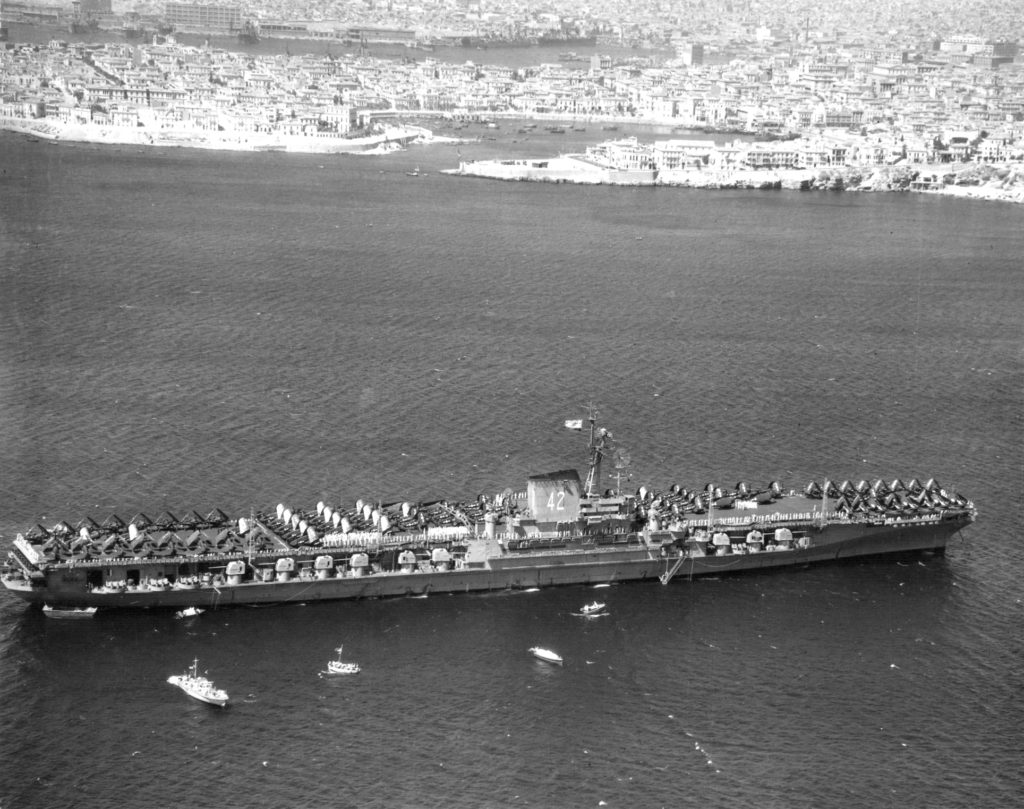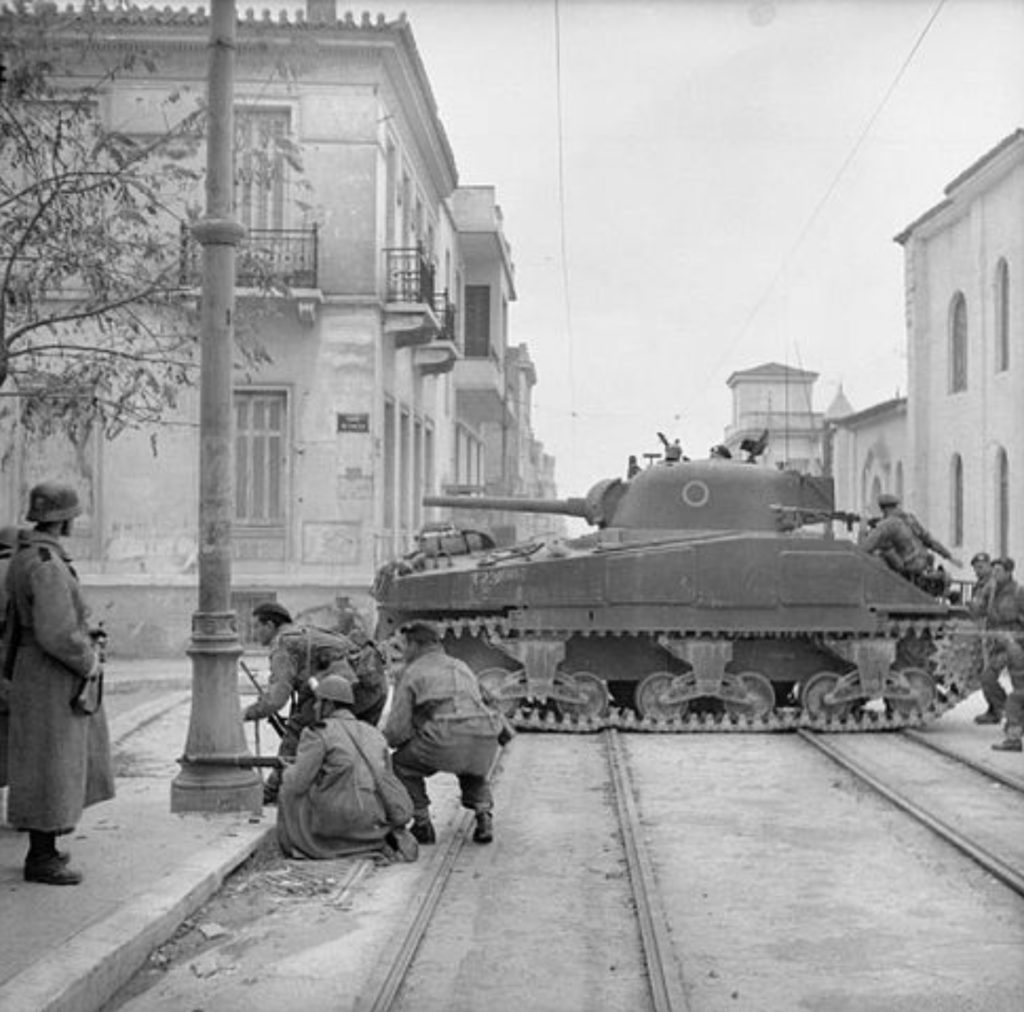“Our Date with Destiny,” by F. Ernest Johnson
April 14, 1947
March 12, 1947, will be a memorable day in American history. When the President was about to address Congress on the Near East crisis, Senator Vandenburg interrupted proceedings in the Senate in order, he said, “that we may keep our date with destiny.” Thus the acknowledged leader of the Republican majority in matters of foreign policy, gave his approval in advance to the demand of a Democratic President, that the United States assume a new role in world affairs. A new mood had been developing in the country and the congressional leaders knew it. Even the opening prayers in House and Senate held an anticipatory note.
That Washington had sensed the feeling of the country pretty accurately, the subsequent reaction of the press proved. Discordant notes are not lacking, and they may increase, but there seems to be a broad consensus supporting the new Truman doctrine. “Manifest destiny” is again being invoked to sanction a vigorous thrust of American power into the arena of international affairs.

The President’s proposal does not fall into the conventional pattern of political penetration by means of economic policy. Had he followed that line and stressed nothing but the economic needs of Greece and Turkey, passing over the political implications, some people would be disturbed; but the demonstrable need of the countries concerned would have constituted an unanswerable argument. But as it is, there is no occasion for suspicion or surmise, since all is out in the open. The United States is called on to assume leadership in stemming the Communist tide and to be ready for large commitments in that direction. The President has thrown soft diplomacy to the winds and called a spade a spade. Whatever course public opinion will take from this point on, the position of the Government is now indelibly written in an unambiguous record. Soviet spokesmen need no longer imagine nor fabricate. Diplomatically, the die is cast.
Is this an inevitable showdown in a struggle to check another totalitarian assault on the freedoms prized by the Western nations, and therefore to be approved? Or is it the first overt step toward a war for the preservation of an economic system of which the United States is the last great citadel, and therefore too rude an enterprise for the Christian conscience to support? Or have we arrived at another of those tragic moments in history when moral values are indeed at stake, but when the effective forces mobilized for their defense are mainly those of self-interest—a moment in which no fully satisfactory ethical alternative is presented? Each of these questions will be answered in the affirmative by large numbers of Christian men and women.
It is true, of course, that in a hundred ways the Soviet Union has helped to bring on this crisis. The continuous pressing for advantage; the predilection for unilateral action; the wholesale, denunciation, direct or inspired, of other governments; the furtive concealment and secrecy; the investing of any trifling incident with fateful significance—these and other factors have built up in the average American mind the impression of a huge conspiratorial and aggressive undertaking that can only bode ill for the nations outside the Russian orbit. At every point where American or British policy has been vulnerable, and there are many, the policy of the Soviet Union has furnished a plausible cover for the defect.
But have our statesmen drawn correct conclusions from these patent facts? It is at least arguable that Russian foreign policy has been less aggressive in design than colossally inept, in spite of occasional instances of clever manipulation. Such a silly act as the condemnation of the Salvation Army on the ground that it is a military organization does not testify to a shrewdly planned policy. Again and again Russian diplomacy has put its worst foot forward. Moreover, the Russians have seemed to be totally blind to the elementary fact that unpredictability is the surest breeder of suspicion and apprehension. Any sensible person knows that the Soviet Union cannot afford another war but it taxes the average person’s imagination to reconcile her post-war policy with any other intention. Why was this not evident to her statesmen? There is not a little reason to suppose that a major characteristic of Russian postwar foreign policy has been sheer ineptitude.
On the other hand, few of us are able to measure the incentive furnished to the Russian Government and people by a terrible fear, well supported by historic events, that the capitalist world will seek at all costs to smother the Communist movement during the years just ahead, when economic rebuilding will exhaust all available resources of Russia and the nations within her sphere of influence. If, as there is much reason to believe, the domestic situation in the Soviet Union is exceedingly precarious, something approximating panic may have prompted her diplomatic course.
On any interpretation, however, it can be argued that a firm stand by our Government will be the most effective way to stop the expansionist drive of the Soviet Union. No convincing case can be made for a hands-off policy in the light of the known facts. The cumulative evidence is too strong that Moscow is either committed to an aggressive course, or is too inept or desperate to be allowed to play with the destiny of Europe. Looked at this way, the situation is tragic indeed. For in coming to the relief of Greece, politically and militarily, we may be implementing reaction—putting the prewar Spanish situation in reverse. Even though the projected move may have an immediate stabilizing effect on Soviet-American relations—and the current Foreign Ministers Conference seems to have absorbed the shock completely—political conditions in southeastern Europe may be harmfully affected. There is too little evidence that Washington has fully appraised American responsibility for the long term consequences of the projected intervention.
But the most immediately grievous aspect of the matter is the unilateral character of the undertaking. The gravamen of our case against Soviet policy is the tendency to go it alone. The curse of a divided world is unilateral action. The sine qua non of One World is multilateral action. The question is not whether UN is able to act, but what will be the effect of our ignoring it. It is a pathetic sort of rejoinder to the charge that UN has been by-passed to say, in effect, that there is nothing much there to by-pass. At this moment it looks as if we have lost the most persuasive argument against the most objectionable feature of Soviet policy, and at the same time discredited the only existing mechanism for resolving international conflicts. It may not be too late to repair the damage, but we had better be quick about it.
F. Ernest Johnson (1885–1969) was president of the Religious Education Association from 1944–46 and the author of The Social Gospel Re-examined (1940).

Selection from “Editorial Notes,” by John C. Bennett
April 14, 1947
In all of the discussion about the President’s policy in relation to Greece, there is one point that should be emphasized in its positive aspects: that the United States has a responsibility to help all people who are within reach to discover a viable alternative to Communism, an alternative that is consistent with the growth of free institutions. The only defense for the support of the present Greek regime is that it may preserve openness in the situation with the possibility of the growth of freedom through political conflict. When once a whole nation has come under the complete control of Communism, this openness is gone. The combination of the efficient police state with the ideological appeal of a missionary faith creates a closed society which leaves little chance for the kind of struggle for freedom that has hope in it. Even if it brings a measure of social justice to classes that have been oppressed, the overwhelming character of the power exercised by Communism, with the help of Russia, brings to a nation a form of political and spiritual oppression that it may be hard to shake off for decades. An inefficient and corrupt monarchy, even though it too is oppressive, is not powerful enough to close the door to the open political struggle that may lead to a better system. If there is no chance of real improvement in government, if no better conditions for the masses of the people are possible, if there are no forces that are struggling for a more democratic order, then our policy is quite futile. Communism will move in anyway.
***
If the aim of our policy is put in this positive form, not as a propaganda trick, but because this is our real purpose, it is consistent with efforts to assure the Russian people that we have no ultimate intention to destroy Communism in Russia. The most dangerous aspect of President Truman’s way of presenting his policy is that it seems to have given great momentum to the kind of hatred of Communism and Russia which has long been the stock-in-trade of important sections of American opinion. Is there no way of counteracting this trend?
John Coleman Bennett (1902 – 1995) was a co-founder of Christianity and Crisis with Reinhold Niebuhr and later served as the president of Union Theological Seminary from 1963 to 1970. His books include Christian Ethics and Social Policy, Christians and the State, and Foreign Policy in Christian Perspective.

“The Greek Problem,” by Ralph Harlow
April 14, 1947
Professor Ralph Harlow, of Smith College, was asked by Christianity and Crisis to make a statement concerning the Greek problem. He has recently returned from a year’s residence in Greece under the auspices of the American Board of Foreign Missions. His statement follows:
Two things stand out in my own thinking in the present grave crisis in Greece: First, the necessity of avoiding any step which might involve the world in another war; and second, saving, if possible, Greece from Communism and thus ending all hope of democratic government or ways of life in the Balkans.
A war between Russia and the United States, which would drag in the other nations of the world, is too catastrophic in its possibilities and results to contemplate with sane minds. It would mean the end of all hope for centuries of that One World of which men have dreamed in these recent years, since the Nazi and Fascist threat was smashed in the ruins of Europe’s civilization. If religion and ethics, brains and science, economics and culture cannot save us now from so dire a fate, destruction will be our destiny, as the scientists who worked on the atomic bomb have so trenchantly pointed out to us.
But the saving of democracy in Greece will not be an easy task. Just recently I had a conference in New York with a leading Greek merchant, a man who was there to buy ships for Greece. Of the five hundred ships in the Greek merchant marine before 1940, over four hundred and fifty have been sunk or taken from that little country, so very dependent upon her merchant fleet for survival. Yet my Greek friend said to me, “I regret to report that we are having the gravest difficulty in purchasing ships. It seems to us that America does not want Greece to have the ships, for fear of competition in the Mediterranean area. We are having the same trouble in England.” A few days later I read in a leading New York paper a statement by one of our outstanding shippers that rather than let any European country buy a ship, which might offer competition to American trade, he would see all the ships, now tied up and useless, sunk in the ocean.
This type of psychology will not only spell ruin for Greece but for all the world. We shall have no prosperity for ourselves or our children that does not bring better life to all men everywhere. Surely we must have learned something from the depression years, or haven’t we?
The surest way to stop Communism in Greece is to help restore her economic life; to give hope to her people, especially her youth, to undergird the people of that poverty ridden and stricken country with hope, hope of work, some security for their homes and children, intellectual revival and spiritual rebirth. These will not come to fruition in a selfish world, where we think in terms only of our own enrichment.
I would like to see the United States urge the United Nations to take on responsibility for the political and military security of Greece from all aggression. I would urge our country to challenge Russia to accept this way for her own peace and security and for the peace and security of all.
Exceedingly important is the matter of who will represent us in Greece. I saw this in connection with U.N.R.R.A. The men and women who will be asked to help restore Greece, sent out by our government, must be people with vision, with human sympathy, and with a desire to know and understand the Greek people, to help them, to be their friends, to make sacrifices on their behalf. Selfish and scornful ambition will seriously mar any good we may seek to accomplish among the Greeks.
S. Ralph Harlow (1885 – 1972) was a religion professor at Smith College in Northampton, Massachusetts, where he applied Judaic and Christian principles to social problems and was active in the “social gospel” movement. A Congressionalist pastor, he served in Turkey as the chaplain and head of the sociology department at International College in Smyrna. His missionary activities ended when Turkey expelled the Greeks in 1922. During World War I, he worked for the Young Men’s Christian Association with the American Expeditionary Force in France. He was a Socialist candidate for the House of Representatives in 1932, modified his pacifist views during World War II, was a former director of the National Association for the Advancement of Colored People, and supported the establishment of Israel.






